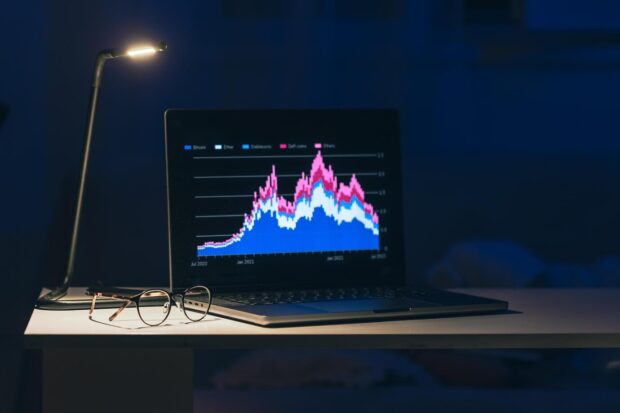Jumping into the world of online trades can feel like stepping onto a busy, bustling trading floor. With so many choices, which platform should you trust? And more importantly, which ones will ease you in rather than toss you into the deep end?
The right choice can make a huge difference, especially if you’re just starting out. We’ll look at beginner-friendly options designed to make your trading experience smooth, effective, and fun.
Key Points
- Choose a platform that fits your learning curve and budget.
- Binomo offers a unique demo account to practice before going live.
- Look for platforms with simple layouts, reliable support, and educational tools.
- Some platforms offer virtual money to practice without risk.
- Avoid complex features early on; start with easy tools and low minimum deposits.
1. Binomo – A Great Start for Beginners

For those new to trading, Binomo stands out as an approachable option. You can register on Binomo and immediately access a $10,000 demo account to learn how to trade.
A demo account is a fantastic way to try strategies without any real risk, which can boost your confidence before diving into real transactions. The platform offers a simple layout where even beginners can easily navigate between their demo and live accounts.
A huge perk of Binomo? It brings together real-time market data and educational tools, so you’re not just winging it.
Having that demo money feels like having a safety net while you get comfortable with the platform. The interface is straightforward, offering quick insights into markets without overwhelming first-timers.
2. eToro – A Social Twist to Trading

eToro brings a unique element that might appeal to beginners: social trading. You’ll see real-time activity from other users, learn from their moves, and even “copy” the trades of successful investors if you like their style. It’s almost like peeking over someone’s shoulder to learn the ropes.
What makes eToro beginner-friendly? It doesn’t require massive investments to start. You can choose small amounts and learn in a practical, no-pressure way. It also has a visually appealing dashboard that keeps things simple and uncluttered – perfect for those early days when you’re still getting used to the charts and graphs.
3. Robinhood – Keeping It Free and Easy
Robinhood is a straightforward platform that gained popularity by cutting out trading fees. This makes it ideal for beginners who want to learn without being weighed down by extra costs. With Robinhood, you can trade stocks, options, and even some cryptocurrencies.
The app is designed for simplicity, with easy navigation that won’t overwhelm. The charts are clean, and while it may not have as many educational tools as other platforms, the no-fee structure gives you room to explore without feeling like you’re losing out on every trade.
4. Webull – Real Tools, No Big Commitments

Webull might sound a little more “serious” but offers an impressive collection of tools that help beginners get a feel for the markets without heavy commitments. It features a demo account for practice, much like Binomo, which allows you to trade with virtual money.
Webull’s charting tools give you a glimpse into technical analysis, so you’re not flying blind. You can look up real-time data, test strategies, and build a foundation before putting in your real funds.
The best part? No fees, just like Robinhood, so there’s no pressure to make every trade perfect.
5. TD Ameritrade – Learning at Your Own Pace
TD Ameritrade’s Thinkorswim is an industry favorite for those who want a comprehensive educational experience.
With Thinkorswim, you get access to professional-level tools but with the flexibility to learn at your own pace.
It has a vast library of resources – videos, guides, and even live online courses to take you from absolute beginner to knowledgeable trader.
The biggest bonus for beginners? The demo account lets you play around without risking real money.
TD Ameritrade may have more tools than you’ll need at first, but as you grow more comfortable, you’ll find that having everything in one place becomes a real advantage.
Table: Comparing Platforms
| Platform | Key Feature | Ideal for |
| Binomo | $10,000 Demo Account | Practice without risk |
| eToro | Social trading | Learning from others |
| Robinhood | No fees | Simple trades |
| Webull | Charting tools | Experimenting with strategies |
| TD Ameritrade | Thinkorswim resources | In-depth learning |
FAQ

1. Do I need money to start on a trading platform?
No. Many platforms offer demo accounts, so you can try out strategies without any real money.
2. How do I choose between different platforms?
Look for options with features that fit your style, like demo accounts, low fees, or social trading.
3. Can I trade on my phone?
Yes. Most platforms have mobile apps so you can keep an eye on trades on the go.
4. How safe is trading online?
Platforms use high-level security, but it’s important to use secure passwords and two-factor authentication.
5. Do I need to know complex terms before I start?
Not at all. Most platforms have tutorials and resources to guide you through every step.




